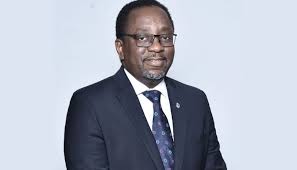During the recent Nigerian Economic Summit Group’s CEO Breakfast Meeting, Professor Fabian Ajogwu, SAN, underscored the necessity for harmonizing guidelines surrounding the transition of individuals from regulatory roles to corporate positions. His remarks were part of the larger discussion themed “Revolving Door: Navigating Public-Private Transitions,” in collaboration with the Federal Ministry of Budget and Financial Planning. Ajogwu highlighted the benefits of having former regulatory officials in corporate settings, as their experience can bridge gaps between public and private sectors. However, he stressed the importance of establishing standardized ‘cooling-off’ periods—defined as the timeframe after leaving a regulatory position during which individuals are prohibited from taking up employment with entities they once oversaw.
Ajogwu emphasized that these cooling-off periods are crucial for promoting ethical business conduct and preventing conflicts of interest. He noted significant discrepancies in cooling-off durations across various sectors, which range from three to five years depending on the applicable guidelines. This lack of uniformity can create confusion and undermine the objectives of preventing potential malpractice. For instance, while the Nigerian Code of Corporate Governance 2018 specifies a three-year wait time, the Nigerian Communications Commission’s Draft Guidelines for 2023 suggest a variable period based on the seniority of the individual, which introduces variability into what should ideally be a consistent standard.
To address these issues, Ajogwu called for the standardization of cooling-off periods across all sectors to mitigate any possible conflicts of interest and enhance overall governance. He also recognized the need for regulators to reinforce their enforcement mechanisms, ensuring that both the integrity of the business environment and the compliance of transitioning individuals are maintained. By instituting automatic penalties for governance infractions, alongside strengthening the capacity of regulatory bodies, Nigeria could better monitor adherence to existing standards.
Ajogwu further advocated for Nigeria to align its public-private transition practices with global best practices. He acknowledged that while the current Nigerian framework shows some consistency with international standards, more work is needed to achieve a unified approach to cooling-off periods. Citing the example of the European Union, which mandates a two-year cooling-off period for former regulatory officials while also requiring them to notify authorities of their new employment, Ajogwu argued for a similar adoption in Nigeria to ensure accountability and transparency in such transitions.
The discussion was enriched by insights from Dr. Emomotimi Agama, Director-General of the Securities and Exchange Commission, who underscored the critical role of public-private transitions in fostering collaboration and innovation. Agama pointed out that the movement of talent between these sectors can significantly enhance capabilities, thereby fueling economic dynamism. He stressed that these transitions not only serve corporate interests but also have broader implications for the economic landscape, promoting a resilient and adaptive economy.
In conclusion, Professor Ajogwu’s call for the harmonization of cooling-off periods and strengthened enforcement mechanisms reflects a proactive approach to enhancing corporate governance in Nigeria. As ex-regulatory officials transition into corporate roles, standardized guidelines can help preserve ethical standards and mitigate conflicts of interest, ultimately benefiting both the public and private sectors. The collaborative input from industry leaders like Dr. Agama emphasizes the importance of this discourse and the need for robust frameworks that facilitate effective knowledge exchange and innovation in Nigeria’s evolving economic landscape.














